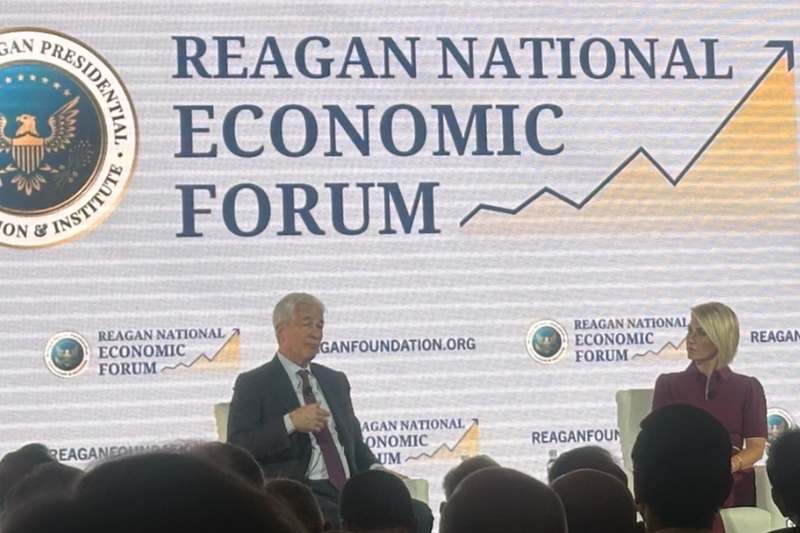
In a strong message that’s stirring debate in financial and political circles, JPMorgan CEO Jamie Dimon has made it clear that the United States should not expect China to easily surrender to American pressure. His remarks come at a time when U.S.-China relations are under intense scrutiny, with tensions rising over trade, technology, and global leadership.
Dimon’s warning goes beyond diplomacy. It’s a call for America to face its own challenges head-on.
While speaking at the Reagan National Defense Forum, Jamie Dimon emphasized that China is not a nation to be underestimated. He noted that the Chinese government takes a focused, long-term approach to solving its problems.
“When they face an issue, they put 100,000 engineers on it,” Dimon said. “They’ve been preparing for this for years.”
This insight reflects China’s strategy of investing heavily in technology, infrastructure, and manufacturing, areas where the U.S. has often lagged due to political infighting and short-term planning. China’s economic resilience, Dimon warned, is not something the United States can ignore or downplay.
Jamie Dimon stressed that America’s greatest threat is not external competition from China, but rather its own failure to address domestic issues. He pointed to the growing U.S. national debt, outdated immigration policies, weak educational systems, and a crumbling infrastructure as core problems.
“The United States needs to get its act together,” he said. “We need to focus on our own internal economic reforms and political dysfunction before telling the world how to operate.”
This isn’t just political rhetoric—it’s a warning from one of the most influential voices in global finance. As the head of JPMorgan Chase, Dimon has a front-row seat to the damage caused by gridlock in Washington and the lack of bipartisan long-term strategies.
One of the most serious warnings from Jamie Dimon was about the potential collapse of the U.S. bond market due to rising debt. He described the ballooning U.S. national debt, now over $36 trillion, as a ticking time bomb.
He warned that if the government continues on its current path, “something is going to break.” According to Dimon, the rising interest rates, uncontrolled spending, and lack of serious fiscal discipline are putting the economy at real risk.
This message is particularly urgent at a time when the world is watching how America manages its economic leadership and credibility.
In a bold statement, Jamie Dimon dismissed the idea of relying on cryptocurrencies like Bitcoin as part of national economic strategy. Instead, he suggested that the U.S. should focus on real-world assets that contribute to national security.
“If we ever have a real conflict, we may only have enough missiles for a week,” he said. “That’s not acceptable. We should be stockpiling semiconductors, rare earths, and ammunition.”
This comment highlights the urgent need for America to strengthen its supply chains, defense readiness, and energy independence—areas where China is already investing heavily.
Dimon’s broader message is clear: the United States must move beyond short-term thinking. Leaders must focus on long-term policy, strategic investments, and innovation. He believes that America’s strength lies not just in military or economic might but in its ability to reform and lead by example.
For too long, America has relied on its past achievements. But according to Dimon, that mindset is outdated. The global landscape has shifted, and if the U.S. wants to remain at the forefront, it must act like it.
For everyday Americans, Jamie Dimon’s warning offers valuable insight. It means the nation can no longer afford to be complacent. While geopolitical tensions with China continue, the real work lies in reforming systems at home.
The key message: Focus on building, not blaming.
This means investing in education, rebuilding infrastructure, attracting talent through smart immigration reform, and addressing the unsustainable national debt. If these problems aren’t solved, America’s position as a global superpower could slowly erode.
Conclusion: Jamie Dimon’s Call for Reform, Not Just Rivalry
Jamie Dimon’s recent remarks are more than a soundbite. They are a strategic analysis of where the U.S. stands and what it must do to stay competitive.
He’s urging America to fix what’s broken internally instead of assuming external powers like China will fold under pressure. If the U.S. wants to shape the future global order, it must lead through strength at home—economically, socially, and politically.
In short, Jamie Dimon warns: Don’t expect China to bow to U.S. pressure—because the real challenge is ensuring the U.S. doesn’t fall behind due to its own internal failures.